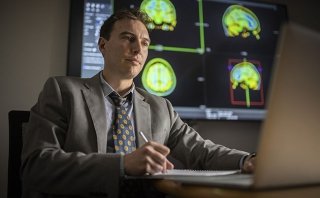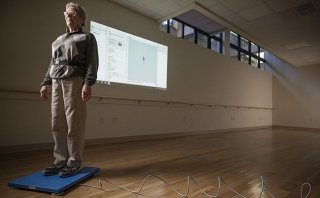
Amir Baniassadi, PhD
- Assistant Scientist II
- Instructor in Medicine, Harvard Medical School and Beth Israel Deaconess Medical Center
- Faculty
Dr. Amir Baniassadi is an Instructor of Medicine at Harvard Medical School and an Assistant Scientist in Marcus Institute for Aging Research. He works on environmental impacts on health and well-being of older populations. He has a Ph.D. in Civil, Environmental, and Sustainable Engineering from Arizona State University and a B.Sc. degree in Mechanical Engineering from the University of Tehran. His post-doctoral training includes a three-year T32 fellowship in Translational Research in Older adults, and a two-year postdoctoral fellowship at Harvard University Graduate School of Design.
Dr. Baniassadi works on the impacts of ambient air temperature and air quality (both indoors and outdoors) on outcomes related to the health and well-being of physiologically and socioeconomically vulnerable populations. His research applies novel environmental modeling and measurement techniques along with remote and long-term physiological and functional monitoring of individuals to establish relationships between exposure and outcome variables of interest outside clinical lab settings. The ultimate goal of his research is to develop environmental interventions that optimize the environment for health and longevity of older adults.
- The effect of home ambient temperature on sleep, gait and balance, and subjective wellbeing in low-income older adults.
Biologically adaptive control of the bedroom temperature as an intervention to improve sleep in older adults.






